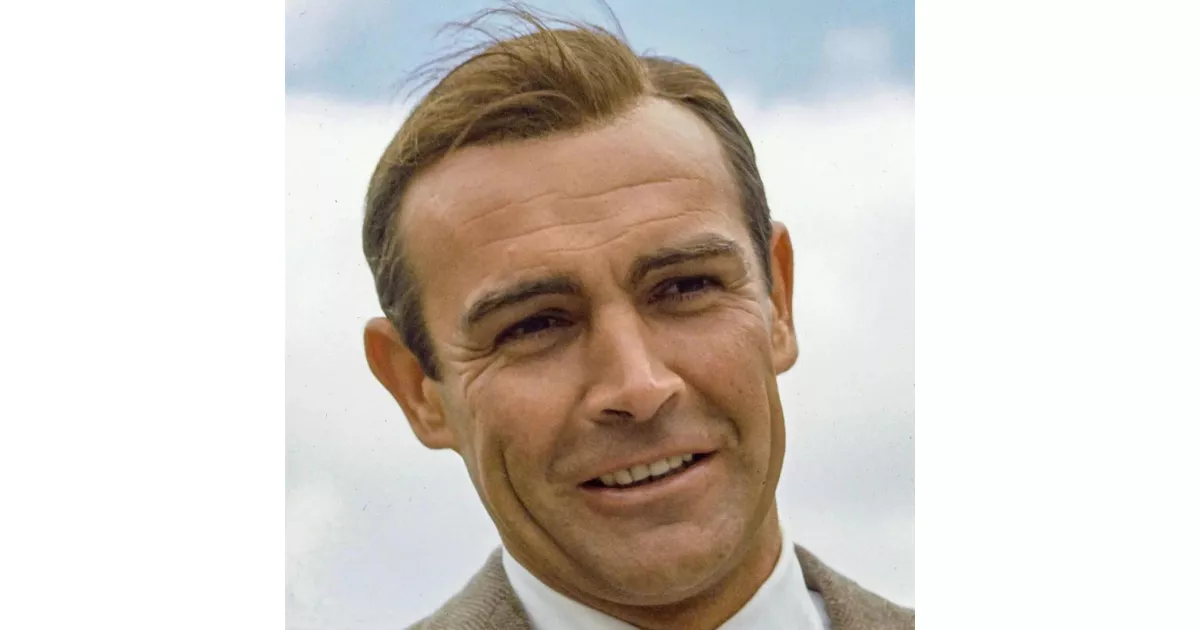Sir Sean Connery was a celebrated Scottish actor, best known as the original James Bond. He defined the character, starring in seven Bond films between 1962 and 1983, beginning with *Dr. No*. His charismatic and suave portrayal established Bond as a cultural icon. Beyond Bond, Connery had a prolific acting career spanning decades, but his role as 007 remains his most iconic and enduring contribution to cinema.
April 1929: Micheline Roquebrune's Birth
On April 4, 1929, Micheline Roquebrune, later to become Sean Connery's wife, was born.
August 1930: Thomas Sean Connery's Birth
In August 1930, Thomas Sean Connery was born at the Royal Maternity Hospital in Edinburgh, Scotland.
1946: Joining the Royal Navy
In 1946, at the age of 16, Sean Connery joined the Royal Navy and acquired tattoos reflecting his commitments to family and Scotland.
1950: Mr. Universe contest
In 1950, Sean Connery's official website states he was third in the Mr. Universe contest
1951: Bodybuilding Training
From 1951, Sean Connery trained heavily in bodybuilding with Ellington, a former gym instructor in the British Army.
1951: Backstage Work at King's Theatre
In late 1951, Sean Connery sought to supplement his income by helping out backstage at the King's Theatre.
1953: South Pacific Audition
In 1953, Sean Connery landed a small part as one of the Seabees chorus boys in a production of South Pacific during a bodybuilding competition held in London.
1953: Mr. Universe contest
In 1953, most sources place Sean Connery in the Mr. Universe competition, either third in the Junior class or failing to place in the Tall Man classification.
1954: Meeting Michael Caine and developing interest in theatre
In 1954, Sean Connery met Michael Caine, and through the production of South Pacific, he developed a serious interest in the theatre through the American actor Robert Henderson. He also appeared as an extra in the film Lilacs in the Spring.
December 1956: Filming Time Lock
Filming of the thriller Time Lock commenced on 1 December 1956 at Beaconsfield Studios, where Sean Connery played a minor role as a welder.
1956: Television Appearances
In 1956, Sean Connery appeared in the theatrical production of Epitaph and had a minor role in the "Ladies of the Manor" episode of the BBC Television police series Dixon of Dock Green, followed by small television parts in Sailor of Fortune and The Jack Benny Program.
April 1957: Requiem for a Heavyweight Role
In April 1957, Sean Connery was cast as Mountain McLintock in BBC Television's production of Requiem for a Heavyweight, marking his first leading role.
1958: Another Time, Another Place Release and Stompanato Incident
In 1958, Sean Connery had a major role in Another Time, Another Place and was involved in an incident with Lana Turner's boyfriend, Johnny Stompanato, who threatened him with a gun on set.
1959: Darby O'Gill and the Little People Release
In 1959, Sean Connery landed a leading role in the Walt Disney Productions film Darby O'Gill and the Little People.
1961: BBC Television Adaptations
In 1961, Sean Connery had prominent television roles in An Age of Kings and Rudolph Cartier's productions of Adventure Story and Anna Karenina for BBC Television. He also portrayed the title role in a CBC television film adaptation of William Shakespeare's Macbeth.
1962: "Bond... James Bond" becomes a catchphrase
Following the release of the film Dr. No in 1962, the line "Bond ... James Bond" became a popular catchphrase.
1962: Marriage to Diane Cilento
In 1962, Sean Connery married Australian actress Diane Cilento.
1962: First James Bond Film
In 1962, Sean Connery starred as James Bond in the first Bond film, Dr. No, initiating his career as the iconic spy.
1963: From Russia with Love
In 1963, Sean Connery starred as James Bond in the Eon Productions film From Russia with Love.
1964: Marnie Release
In 1964, Sean Connery appeared in Alfred Hitchcock's film Marnie.
1964: Filming of Goldfinger
In 1964, Sean Connery received golf lessons from Peter Alliss before filming the James Bond movie Goldfinger, which included a golf scene at Stoke Park Golf Club. Connery's character, James Bond, wore a Slazenger v-neck sweater in the scene, which became associated with him.
1964: Bond's Scottish Heritage
In 1964, after the success of Dr. No, Ian Fleming changed James Bond's heritage, giving him a Scottish father from Glencoe in the Scottish Highlands in the novel You Only Live Twice.
1964: Starring in 'Marnie'
In 1964, while making the Bond films, Sean Connery starred in Alfred Hitchcock's "Marnie" opposite Tippi Hedren, fulfilling his desire to work with Hitchcock and ensuring he wouldn't be typecast by reviewing the script.
June 1965: Time Magazine on James Bond
In June 1965, Time magazine observed that "James Bond has developed into the biggest mass-cult hero of the decade".
1965: Alleged Playboy Interview Quote
In 1965, Sean Connery allegedly made a controversial statement in Playboy magazine regarding hitting women, which he later denied.
1965: The Hill Release
In 1965, Sean Connery appeared in Sidney Lumet's film The Hill.
1965: Starring in 'The Hill'
In 1965, Sean Connery starred in Sidney Lumet's "The Hill", seeking a role different from Bond, a film that was a critical success and debuted at the Cannes Film Festival winning Best Screenplay.
1965: Filming Thunderball Shark Sequence
In 1965, during the filming of "Thunderball", Sean Connery faced danger while filming a sequence with sharks in Emilio Largo's pool, despite his insistence on a Plexiglas partition.
1966: Inspired by Glasgow's Shipyards
In 1966, Sean Connery's experiences filming in Glasgow's shipyards inspired him to become a member of the Scottish National Party (SNP).
1966: Fairfield Experiment initiated
In 1966, the Fairfield Experiment was initiated, supported by George Brown, to provide funds for new ways of industrial management at the Fairfield Shipbuilding and Engineering Company.
1967: Directing 'The Bowler and the Bunnet'
In 1967, Sean Connery directed and presented the documentary film "The Bowler and the Bunnet", which described the Fairfield Experiment, a new approach to industrial relations.
1967: Cover illustration for Cilento's novel
In 1967, Sean Connery illustrated the cover of Diane Cilento's novel, "The Manipulator."
1967: Last James Bond Film
In 1967, Sean Connery played James Bond in You Only Live Twice, the fifth Bond film produced by Eon Productions, before departing from the role.
1967: You Only Live Twice Release
In 1967, Sean Connery starred as James Bond in the Eon Productions film You Only Live Twice.
1967: Letter to George Leslie
In 1967, Sean Connery wrote a letter to George Leslie, the SNP candidate, expressing his belief in a prosperous, vigorous, and modern self-governing Scotland.
1971: Separation from Diane Cilento
In 1971, Sean Connery and Diane Cilento separated.
1971: Return as James Bond
In 1971, Sean Connery returned to the role of James Bond for the seventh film, Diamonds Are Forever.
1971: Diamonds Are Forever Release
In 1971, Sean Connery starred as James Bond in the Eon Productions film Diamonds Are Forever.
1972: Golden Globe Henrietta Award
In 1972, Sean Connery shared a Golden Globe Henrietta Award with Charles Bronson for "World Film Favorite – Male."
1973: The Offence Release
In 1973, Sean Connery appeared in Sidney Lumet's film The Offence.
1973: Divorce from Diane Cilento
In 1973, Sean Connery divorced Diane Cilento.
1974: Murder on the Orient Express Release
In 1974, Sean Connery appeared in the film Murder on the Orient Express.
1974: Starring in 'Murder on the Orient Express' and 'Zardoz'
In 1974, Sean Connery was part of the ensemble cast in "Murder on the Orient Express" and starred in the sci-fi thriller "Zardoz", which, despite initial criticism, has since gained a cult following.
1975: Starring in 'The Man Who Would Be King'
In 1975, Sean Connery appeared in John Huston's "The Man Who Would Be King" opposite Michael Caine, portraying former British soldiers who become kings, a film both actors considered their favorite.
1975: The Man Who Would Be King Release
In 1975, Sean Connery appeared in John Huston's film The Man Who Would Be King.
1975: Marriage to Micheline Roquebrune
In 1975, Sean Connery married French-Moroccan painter Micheline Roquebrune, a marriage that lasted until his death.
1976: Robin and Marian Release
In 1976, Sean Connery acted in the film Robin and Marian.
1976: Starring in 'Robin and Marian'
In 1976, Sean Connery starred as Robin Hood in "Robin and Marian" opposite Audrey Hepburn, who played Maid Marian.
1977: A Bridge Too Far Release
In 1977, Sean Connery acted in the film A Bridge Too Far.
1977: Starring in 'A Bridge Too Far'
In 1977, Sean Connery played a British Army general in Richard Attenborough's war film "A Bridge Too Far" co-starring Dirk Bogarde and Laurence Olivier.
1979: Ownership of Domaine de Terre Blanche
In 1979, Sean Connery acquired the Domaine de Terre Blanche in the South of France.
1981: Time Bandits Release
In 1981, Sean Connery acted in the film Time Bandits.
1981: Starring in 'Time Bandits' and 'Outland'
In 1981, Sean Connery appeared in "Time Bandits" as Agamemnon and portrayed Marshal William T. O'Niel in the science fiction thriller "Outland".
1982: Narrating 'G'olé!' and Turning Down 'Annie'
In 1982, Sean Connery narrated G'olé!, the official film of the 1982 FIFA World Cup, and was offered the role of Daddy Warbucks in Annie, ultimately declining the part.
October 1983: Release of 'Never Say Never Again'
In October 1983, Sean Connery reprised his role as Bond in "Never Say Never Again", a film plagued with production issues and negative experiences for Connery.
1983: Final Bond Appearance
In 1983, Sean Connery made his final appearance as James Bond in Never Say Never Again, a non-Eon-produced film.
1983: Final Appearance as James Bond
In 1983, Sean Connery made his final appearance as James Bond in Never Say Never Again, a remake of Thunderball.
1986: Highlander and The Name of the Rose Releases
In 1986, Sean Connery acted in both Highlander and The Name of the Rose.
1986: BAFTA Award for 'The Name of the Rose' and 'Highlander'
In 1986, Sean Connery won a BAFTA Award for Best Actor for "The Name of the Rose". Also in the same year, he starred in "Highlander", showcasing his ability to play older mentors.
1987: Awards for The Untouchables and The Name of the Rose
In 1987, Sean Connery received the Academy Award and Golden Globe Award for Best Supporting Actor for his role in The Untouchables, and the BAFTA Award for Best Actor for his role in The Name of the Rose. He also received the Cecil B. DeMille Award in the same year.
1987: Starring in 'The Untouchables'
In 1987, Sean Connery starred in Brian De Palma's "The Untouchables" as an Irish-American cop, a performance that earned him a BAFTA nomination, a Golden Globe Award, and an Academy Award for Best Supporting Actor.
1989: Indiana Jones and the Last Crusade Release
In 1989, Sean Connery acted in the film Indiana Jones and the Last Crusade.
1989: Starring in 'Indiana Jones and the Last Crusade'
In 1989, Sean Connery starred in Steven Spielberg's "Indiana Jones and the Last Crusade", playing Henry Jones Sr., and received BAFTA and Golden Globe nominations for his performance.
1989: Named "Sexiest Man Alive" by People Magazine
In 1989, Sean Connery was voted "Sexiest Man Alive" by People magazine.
1990: The Hunt for Red October Release
In 1990, Sean Connery acted in the film The Hunt for Red October.
1990: Starring in 'The Hunt for Red October'
In 1990, Sean Connery starred in the box-office hit "The Hunt for Red October".
1991: Cameo in 'Robin Hood: Prince of Thieves'
In 1991, Sean Connery made a brief cameo appearance as King Richard the Lionheart at the end of "Robin Hood: Prince of Thieves".
May 1993: Opening of PGA Centenary Course at Gleneagles
In May 1993, Sean Connery, along with Jackie Stewart, assisted Jack Nicklaus in opening the PGA Centenary Course at Gleneagles in Scotland.
1993: Alleged Vanity Fair Quote
In 1993, Sean Connery was reported to have stated in Vanity Fair his views on women seeking confrontation, which contributed to later controversies.
1995: Starring in 'First Knight' and 'Just Cause'
In 1995, Sean Connery starred in "First Knight" and "Just Cause", films that were box-office and critical disappointments.
1996: Dragonheart and The Rock Releases
In 1996, Sean Connery acted in both Dragonheart and The Rock.
1996: Starring in 'The Rock' and 'Dragonheart'
In 1996, Sean Connery starred in the box-office hit "The Rock" and voiced Draco the dragon in the film "Dragonheart".
1997: Payment of UK taxes
Between 1997 and 1998, Sean Connery paid £3.7 million in UK taxes, as revealed in documents released in 2003.
1997: First Knighthood Nomination
In 1997, Sean Connery was nominated for a knighthood, which was reportedly vetoed.
1998: Payment of UK taxes
Between 1997 and 1998, Sean Connery paid £3.7 million in UK taxes, as revealed in documents released in 2003.
1998: BAFTA Fellowship
In 1998, Sean Connery received the BAFTA Fellowship award.
1998: Starring in 'The Avengers'
In 1998, Sean Connery starred in "The Avengers", a film that was a box-office and critical disappointment.
1998: Second Knighthood Nomination
In 1998, Sean Connery was again nominated for a knighthood, which was also reportedly vetoed.
1999: Sale of Domaine de Terre Blanche
In 1999, Sean Connery sold the Domaine de Terre Blanche to Dietmar Hopp.
1999: Starring in 'Entrapment'
In 1999, Sean Connery starred in the box-office hit "Entrapment".
1999: Named "Sexiest Man of the Century" by People Magazine
In 1999, Sean Connery was voted "Sexiest Man of the Century" by People magazine.
1999: Sale of Marbella Villa and Tax Evasion Investigation
In 1999, Spanish authorities launched a tax evasion investigation after Sean Connery sold his Marbella villa, alleging a £5.5 million fraud against the Spanish treasury.
July 2000: Knighthood Ceremony
On July 5, 2000, Sean Connery was knighted by Queen Elizabeth II at Holyrood Palace in Edinburgh.
2000: Finding Forrester Release
In 2000, Sean Connery acted in the film Finding Forrester.
2000: Starring in 'Finding Forrester'
In 2000, Sean Connery received positive reviews for his performance in "Finding Forrester" and was also awarded a Crystal Globe.
2000: Knighthood
In 2000, Sean Connery was knighted by Queen Elizabeth II for his services to drama in the New Year Honours.
2001: Cessation of SNP Funding
In 2001, Sean Connery's funding of the SNP ceased due to new legislation in the British Parliament prohibiting overseas funding of political activities in the United Kingdom.
2002: Payment of UK taxes
Between 2002 and 2003, Sean Connery paid £3.7 million in UK taxes, as revealed in documents released in 2003.
2003: Starring in 'The League of Extraordinary Gentlemen'
In 2003, Sean Connery starred in "The League of Extraordinary Gentlemen", a film that led to his disillusionment with filmmaking and eventual retirement from acting.
2003: The League of Extraordinary Gentlemen Release
In 2003, Sean Connery's final on-screen role was in The League of Extraordinary Gentlemen as Allan Quatermain.
2003: Release of Tax Documents
In 2003, in response to accusations of tax exile status, Sean Connery released documents showing he paid £3.7 million in UK taxes between 1997-1998 and 2002-2003.
2004: Recognized as "The Greatest Living Scot"
In 2004, a poll in the UK Sunday Herald recognized Sean Connery as "The Greatest Living Scot".
2005: Voiceovers for 'From Russia with Love' Video Game
In 2005, Sean Connery recorded voiceovers for the "From Russia with Love" video game and provided his likeness, expressing his happiness with Electronic Arts' offer to voice Bond.
June 2006: Retirement Announcement
In June 2006, Sean Connery confirmed his retirement from acting at the American Film Institute's Lifetime Achievement Award ceremony, citing disillusionment with Hollywood.
2006: Controversy over abuse allegations
In 2006, Sean Connery faced controversy over alleged support of abuse of women, leading to cancellation of an appearance at the Scottish Parliament, claims he vehemently denied.
June 2007: Denial of Indiana Jones Appearance
In June 2007, Sean Connery denied rumors that he would appear in the fourth Indiana Jones film, emphasizing his enjoyment of retirement.
2009: Taxi Conversation
In 2009, Sean Connery recalled a conversation he had in a taxi.
2010: Bronze Bust in Tallinn
In 2010, a bronze bust sculpture of Sean Connery was placed in Tallinn, Estonia, outside The Scottish Club.
2011: Remarks on The Bowler and the Bunnet
In 2011, Sean Connery stated that "The Bowler and the Bunnet was just the beginning of a journey that would lead to my long association with the Scottish National Party".
2011: Named "Scotland's Greatest Living National Treasure"
In 2011, a EuroMillions survey named Sean Connery "Scotland's Greatest Living National Treasure".
2012: Voice Role in 'Sir Billi'
In 2012, Sean Connery briefly came out of retirement to voice the title character in the Scottish animated film "Sir Billi", also serving as executive producer.
2014: Brother's Statement on Independence Rally
In 2014, leading up to the Scottish independence referendum, Sean Connery's brother Neil stated that Connery wouldn't come to Scotland to rally supporters due to his tax exile status.
October 2020: Death of Sean Connery
In October 2020, Sean Connery died in his sleep at the age of 90 at his home in the Bahamas. His death was attributed to pneumonia and respiratory failure, with dementia being a factor in his final years.
October 2020: Sean Connery's Death
In October 2020, Sean Connery, the Scottish actor famous for being the first to play James Bond, passed away.
2021: Value of 1966 Funding
In 2021, the £1 million provided to the Fairfield Shipbuilding and Engineering Company in 1966 was equivalent to £13.135 million (US$15.55 million).
2022: Ashes Scattered in Scotland
In 2022, Sean Connery's remains were cremated, and his ashes were scattered in Scotland at undisclosed locations.
2023: £882 in 2023
In 2023, the value of £25 a week in Sean Connery's time would be equivalent to £882.
2024: Establishment of Sean Connery Prize
In 2024, the Edinburgh International Film Festival established the annual Sean Connery Prize for Feature Filmmaking Excellence, awarding £50,000 to the makers of a film chosen by audience vote from a shortlist of ten world premieres.
Mentioned in this timeline

Elizabeth II reigned as Queen of the United Kingdom and...
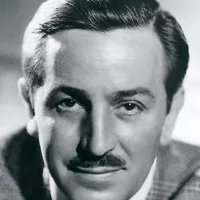
Walter Elias Disney was a highly influential American animator film...
The Kennedy Center Honors are annual awards recognizing individuals and...
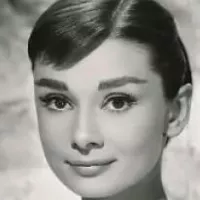
Audrey Hepburn a British actress achieved iconic status in film...

Football is a family of team sports primarily involving kicking...
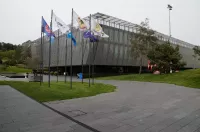
FIFA the F d ration Internationale de Football Association is...
Trending
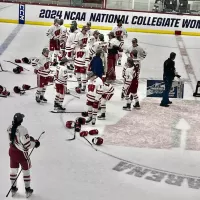
1 hour ago USA Women's Hockey Olympic Win Over Italy Marred by Heated Play and Officiating
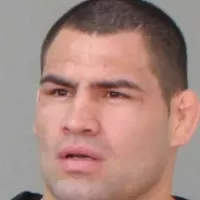
1 hour ago Cain Velasquez Granted Early Parole, Announces Mental Reset Seminar Plans Post-Release.
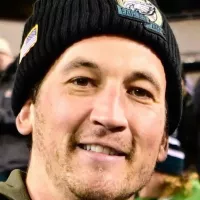
1 hour ago Miles Teller stars in Apple TV's 'Eternity': Ending, review, and similar rom-coms.
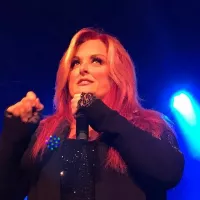
2 hours ago The Highwomen Return: Carlile, Crow, Judd, and Spencer Reunite for Canyon Performances.

2 hours ago Raphael Veiga's game impresses fans; Adapts to Mexico after leaving Palmeiras.
2 hours ago Jalen Williams Injury Scare: Thunder Re-evaluating Hamstring After All-Star Break
Popular

Kid Rock born Robert James Ritchie is an American musician...

Pam Bondi is an American attorney lobbyist and politician currently...
Randall Adam Fine is an American politician a Republican who...

Barack Obama the th U S President - was the...
The Winter Olympic Games a major international multi-sport event held...

XXXTentacion born Jahseh Dwayne Ricardo Onfroy was a controversial yet...
